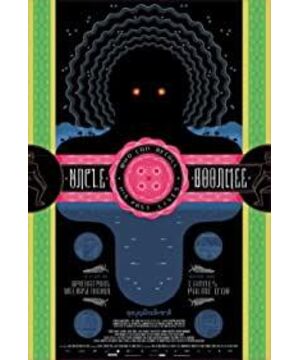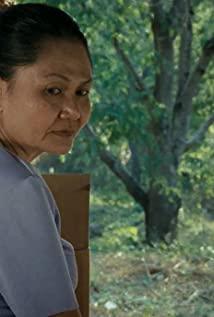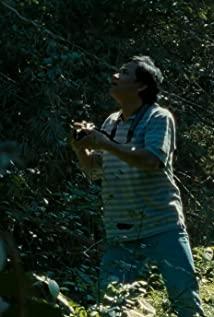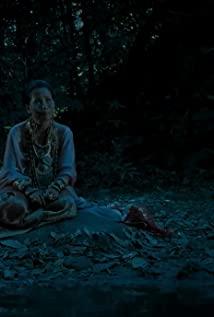At the beginning of another decade, the Cannes Film Festival seemed too plain. Even the master's shots are not amazing, and the newcomers are not very vigorous when they appear on the stage, but fortunately, Apichatpong has appeared.
While Chinese films are still arguing about film and box office, and the film should tell a good story, it should be the best means of entertainment for decompression, and try to do more in-depth philosophical discussions to express people’s lives and needs in the world. The distance in light years. Even some powerful authors have been creating another universe, and the audience is just curious or puzzled by others.
Apichatbang is such a powerful author. He was born in 1970, the same year as the Chinese director Jia Zhangke. The two are similar in their aesthetic pursuits, situation, history, and position in the world of film. They both have artistic skills, have a special liking for the presentation of space in movies, and both have lingering hometown feelings. They are able to occupy a place in the world of film, not only because of the content of the film, but more importantly, the form and structure of their films. They are truly contemporary directors, and they have long disregarded the expression of precise opinions in their films. The difference between the two is that one tries to go inside the system to change the system, while the other is still actively singing against the system.
In 2007, Apichatpong published an open letter to the Thai government because his film "Syndrome and a Hundred Years" failed to pass the censorship of relevant Thai institutions and could not be shown in Thailand. He stated in the letter, "I, a filmmaker, treat my work as my own children. When I gave birth to them, they had their own lives. Now that I have done my best to create them, Therefore, I don’t care whether others like or hate them. For whatever reason, if my offspring can’t live in their own country, then let them be free. In this world, there are many places where they will be enthusiastic about who they are. They are welcome. I can’t kill my children because I’m afraid of the system or for profit. Otherwise, I can’t continue to create art.” Later, he launched the "Free Thai Film Movement", which was jointly signed by filmmakers from all over the world. support.
In this open letter, he expressed his tenet of creating movies based on the principle of self. His creation is not affected by other factors, such as box office, audience’s preference, film critic’s preference, film festival’s approval...and even Initiated a sharp and fresh film language. "The Man Who Remembers Past Life" is such a film, showing the director's own thinking about the relationship between humans and other animals, the transfer of souls, the destruction of species, the dictatorship of beliefs and other concepts. It also declares war on the current Thai film censorship system. Another masterpiece.
At the last Cannes Film Festival, the Danish master Ras-von Trier’s "Antichrist" was difficult to calm for a long time because of its horror and dark qualities. However, it was an English film with a background of Western Christianity. The broad mass base caused great controversy. "The Man Who Remembers Past Life" is more complicated, but it is rooted in Thailand’s original ecological culture, which is more private and more philosophical, so it will be less understood and accepted than "The Antichrist". ".
"The Man Who Reminisces Past Life" tells the story of Uncle Bumi who is about to pass away due to kidney failure. He returned to his hometown to spend the last time of his life. The soul of his dead wife and his long-lost son who became a gorilla returned to his Around. In order to find out the reason for his illness, Uncle Bumi traveled through the woods with his family, came to a cave in the deep mountains, and died there. And that cave is where he was born, a metaphor for the womb.
Talking about the original intention of the filming, Apichatpong said, “A few years ago, I met Uncle Bumi. The abbot of the temple next to my house told me that an uncle came to the temple to learn meditation, and he also helped Zhang Luo with some activities in the temple. One day, Uncle Bumi found an abbot and told him that when he was meditating, he could see his past life with his eyes closed, just like watching a movie. He saw and felt that he was a buffalo and a head. The cow even broke away from the body and wandered on the northeastern plain. The abbot was touched, but he was not surprised, because Uncle Bumi was not the first person to describe this kind of experience with him. Gradually, he shared his past life with him from the village. Collected stories from people in the country. Later, he published a booklet. On the cover it wrote: A person who can recall his past life.”
In the original script, according to the original, Uncle Bumi’s past life was explained in detail. According to Apichatpong’s rhetoric, it should be the buffalo that appeared at the beginning of the film, but he said, “In the film, I decided to respect the imagination of the audience. He can be all the creatures in the film, such as insects, bees, soldiers, Catfish or something, he can even be his son and ghost wife like an ape.” In this way, the film strengthens the special connection between the film and reincarnation, expressing Apichatpong’s own views on reincarnation.
Compared with the original work, there are a lot of Apichatpong's own things in this movie. For example, the style of the image is very similar to the Thai movies he saw when he was growing up. For example, Uncle Bumi and his deceased father died because of kidney failure. For example, all the movies in Uncle Bumi’s bedroom Those installations were all copied from his father.
This is a movie that needs to be watched repeatedly and carefully. If it shocks you for the first time, I hope that the next second and third time, you can cross the line of fire and enter this universe. Sina Entertainment Front Report Team from Cannes
View more about Uncle Boonmee Who Can Recall His Past Lives reviews










